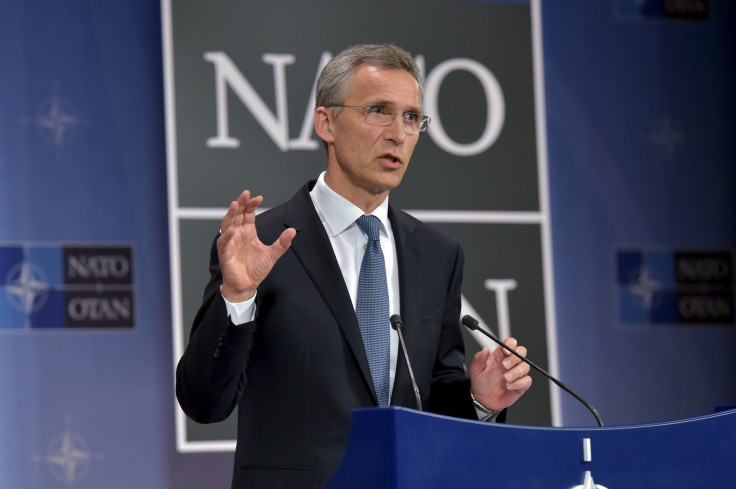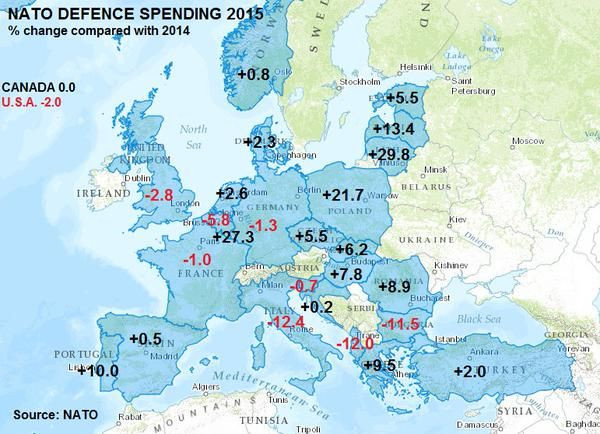NATO Triples Reaction Force In The Face Of Russian Hostility

NATO defense ministers have authorized an extensive increase in the alliance's rapid response force, more than tripling it to 40,000 personnel. In a meeting in Brussels on Wednesday, they took steps to do what Secretary General Jens Stoltenberg called "adapting NATO to our changed and more challenging security environment," according to a statement on the organization's site.
The NATO meeting also finalized details of six small headquarters for the reaction force being set up in Bulgaria, Estonia, Latvia, Lithuania, Poland and Romania. Each new HQ will consist of around 40 members of staff and “will play a key role in planning, exercises and assisting potential reinforcement,” said Stoltenberg. The decision to expand the force known as the NATO Reaction Force, a multinational effort to respond quickly to trouble spots across the alliance's territory, comes as relations with the alliance's old foe, Russia, are at the lowest point since the end of the Cold War.
While the secretary general said NATO is now in a position of high readiness, the group is still “carefully assessing the implications of what Russia is doing, including its nuclear activities,” and stressed that NATO did not “seek confrontation, and we do not want a new arms race.”
NATO has reacted by conducting multiple training exercises across Europe in the face of renewed Russian hostility. Russian aircraft and submarines have come close to the sovereign airspace and waters of European nations hundreds of times since Moscow annexed Crimea in March 2014, sparking tensions with NATO. And in Ukraine, while a ceasefire was agreed to in Minsk in February, few days have passed without clashes between pro-Russian rebel troops and Ukrainian forces.
To facilitate Europe’s new defensive posture, NATO also decided to establish a joint logistics HQ that will enable the rapid movement of forces when necessary. Stoltenberg also mentioned the United States for its decision to place heavy weapons throughout Eastern Europe, saying it was proof of a “a truly transatlantic effort to reinforce our collective defense.”
Yet despite NATO's effort to increase military readiness and drive to raise military spending over the next decade, many alliance members have year-on-year reduced their defense spending to far below the 2 percent of GDP suggested by NATO. Stoltenberg said that “progress has been made” on the issue of raising defense spending, but he needed “to see more.”

© Copyright IBTimes 2024. All rights reserved.






















